As a child, Lucina Martínez Régules (Class of 2004, Mexico) understood “community” to mean organizing neighbors to build a road—by hand—that would connect her village to others. It meant carrying stones, blocks, and cement on her back to help build a school. It meant that “even the cats had to catch mice, and the dogs had to guard the houses to earn their daily food.” For Lucina, community was—and still is—a way of being in the world. A way where every individual has rights, and therefore also holds the responsibility to contribute to collective work.
Lucina is part of the Chinanteco Indigenous people, who live in the state of Oaxaca, Mexico. At the age of six, she would hold her father’s hand and attend local assemblies where important decisions were made about infrastructure, community labor, and individual or collective needs. It was in those spaces, from a very young age, that she came to understand the meaning of justice. And she made it an essential part of her life.
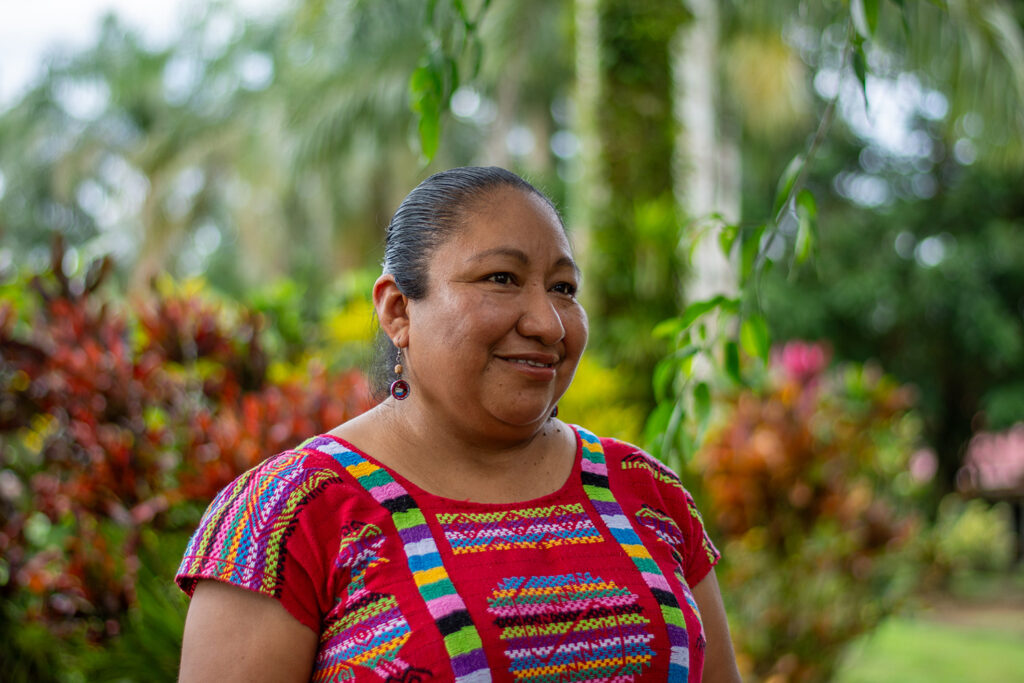
Before arriving at EARTH, Lucina had already planted the seed of her professional path: she had graduated as a technician in community development and had worked with Mexico’s National Council for Educational Development. She knew she wanted to use the knowledge she would gain at university to nurture her dream of returning home and continuing to work with communities in Oaxaca—especially in San Juan Bautista de Tuxtepec, where she grew up. She never imagined working for big corporations or scientific research centers. She wanted to understand how value chains functioned so she could help strengthen those of her people and contribute to the ongoing fight for land sovereignty in Indigenous territories.
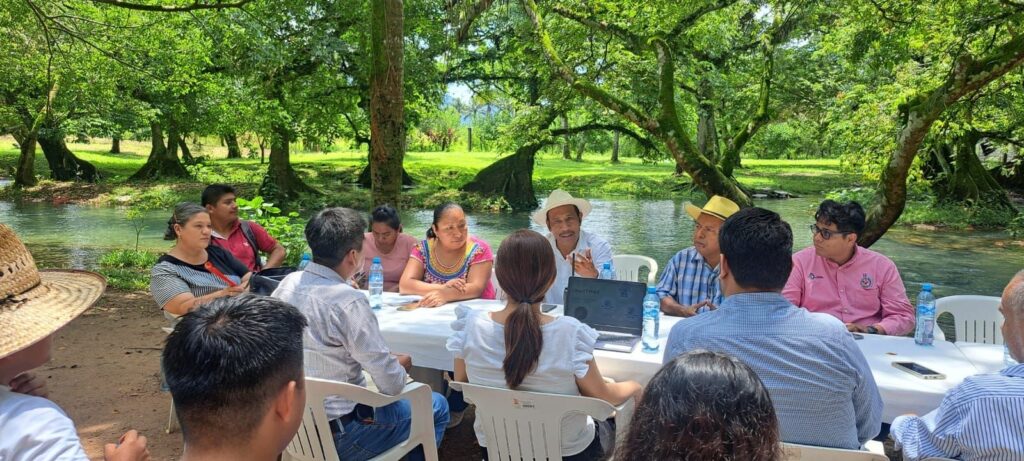
After graduation, Lucina returned to Mexico—and that goal remained. She began working with smallholder farmers from a private company, training and organizing them to improve their access to export markets. Years later, she joined academia to help train new agricultural professionals. However, her community-driven vocation led her to the state’s Secretariat of Agricultural Development, where she served as a regional coordinator. In that role, she accompanied farmers and producers across 21 municipalities—and there, she began to see a structural pattern: Indigenous communities are not competing on the same playing field as everyone else. “Those at a disadvantage cannot compete under the same rules as those with privilege and resources. The government cannot treat everyone the same when inequality exists,” she explains.
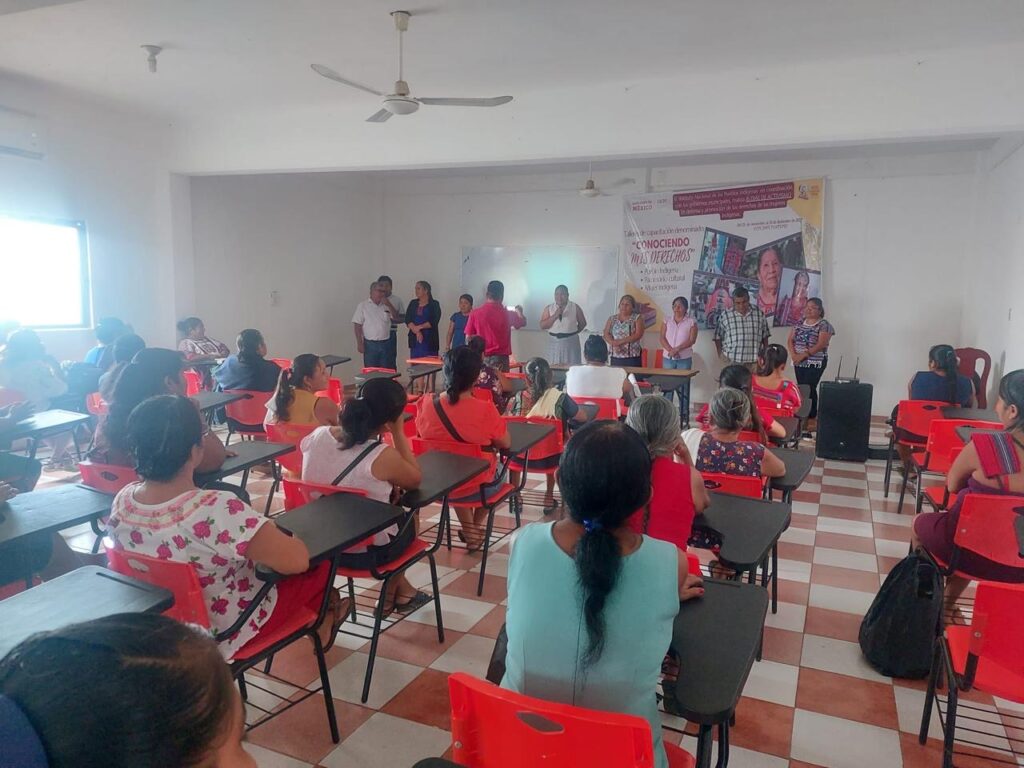
That thought, planted in childhood, found new ground in 2018 when Lucina was invited to join Mexico’s National Institute for Indigenous Peoples (INPI), a federal agency responsible for safeguarding the rights of Indigenous peoples. Since then, her work has focused on promoting and defending two fundamental rights: autonomy and self-determination, and the right to free, prior, and informed consent. To fully understand these legal frameworks, Lucina began studying law on her own. “The technical knowledge I gained at EARTH has been incredibly useful, but incorporating a legal lens has been key—because now I work from a rights-based approach within a legal framework, rather than purely from a social support perspective.”
One of her current focus areas is the protection of Indigenous cultural heritage, especially the textile knowledge of artisan women. Along with her team, Lucina is working to ensure that these women are recognized not just as creators of beauty and tradition, but also as legal rights-holders. “What you see is not just a blouse,” she says, pointing to her traditional Chinanteco clothing. “It’s an entire language—each stitch has meaning. It’s a way of seeing the world that’s been plagiarized by fast fashion companies, and that’s why we must protect it.”
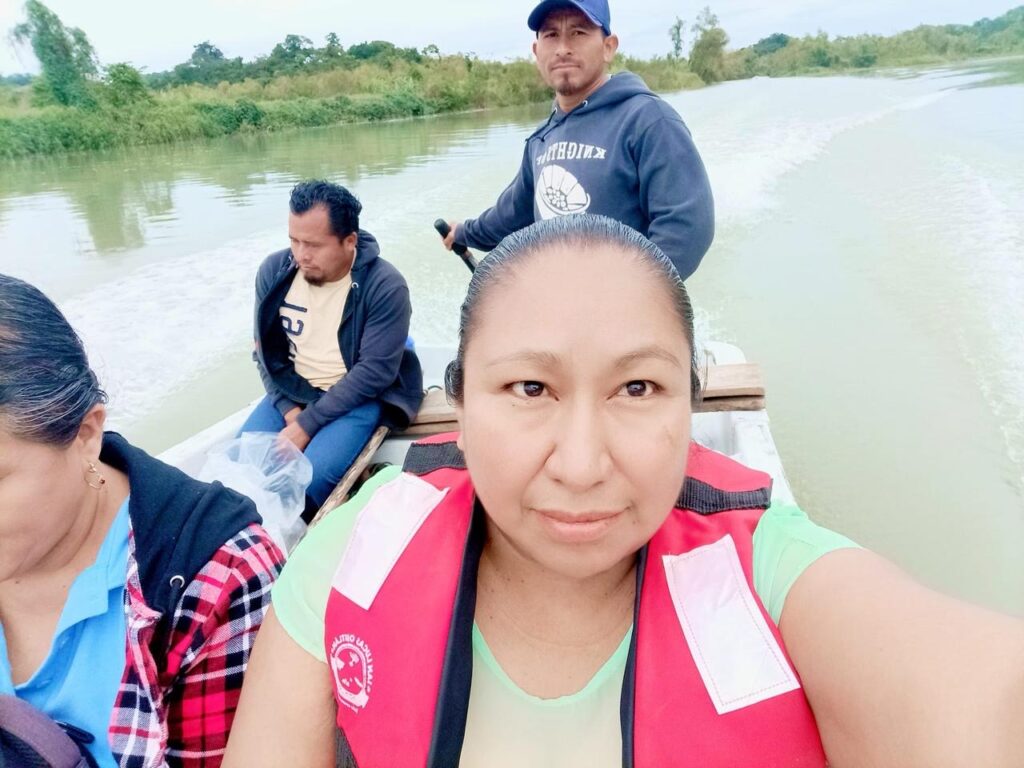
Although a law was passed in 2019 in Mexico to penalize cultural appropriation, there are still no clear mechanisms for enforcement. Lucina works directly with women artisans to build those paths—through protocols, legal processes, documentation, and the possibility of defending their heritage in court. “We want them to be able to prove that this belongs to them. And if someone plagiarizes it, there should be consequences. This is a form of economic, emotional, and symbolic violence. Many women have escaped cycles of violence thanks to what they weave, to what they create. We need to protect that value chain.”
Beyond textile heritage, Lucina also leads INPI projects that range from Indigenous education in youth shelters to participatory policymaking for the protection of natural resources. She acknowledges that many communities are resisting the entry of extractive industries like mining—and that this resistance is a legitimate way of exercising autonomy. “The United Nations recognizes that much of the world’s remaining natural resources are found in Indigenous territories. Why? Because they’ve been preserved there. Because Indigenous peoples don’t view nature as something to extract, but as something to care for—for future generations.”
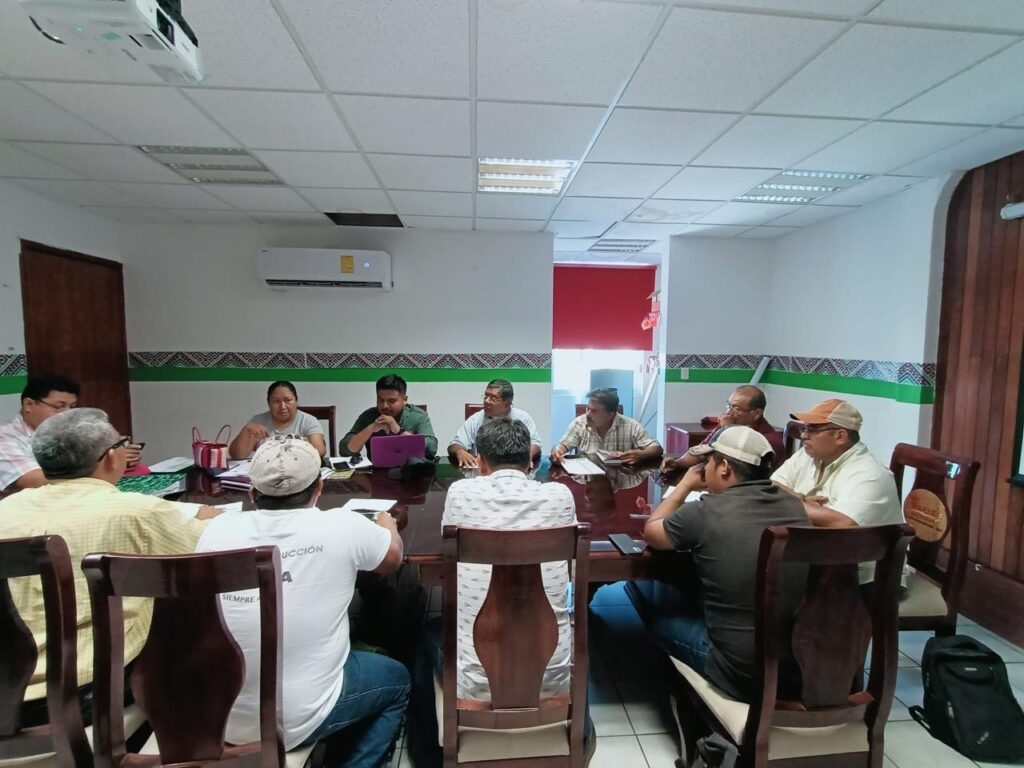
For Lucina, when public policy arrives from the outside and tells a community, “this is what you need,” without listening first or diagnosing real needs, that’s a colonial imposition. That’s why she works for Indigenous knowledge to be respected and valued—not as something to be developed, but as something that already holds cultural, economic, and environmental worth, and often just needs a boost to truly thrive.
Today, with over twenty years of professional experience, Lucina looks back and reaffirms that her education at EARTH was a pillar that helped her get here. “At EARTH, I learned to analyze value chains, understand production systems, and see the economic side of things. But most importantly, I learned to integrate all that with rights defense. Today, I don’t just seek to improve people’s quality of life—I seek to do it through their dignity. Through whom they already are. Through what they already know.”
The six-year-old Lucina is now an Indigenous woman, an agricultural engineer, and a lawyer. And she is the one firmly holding the hands of men, women, and children—to help build new paths of knowledge, rights, and collective struggle.
